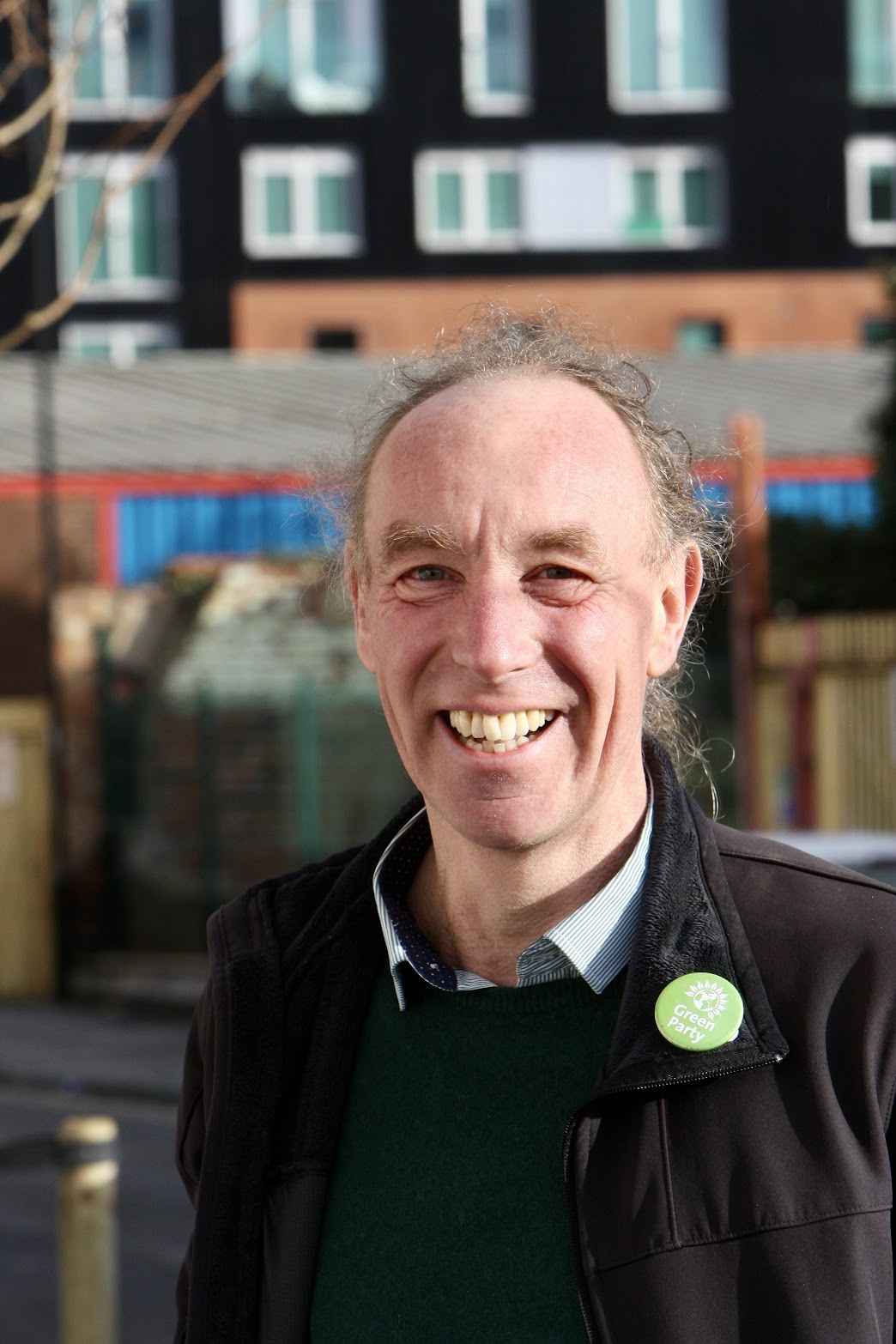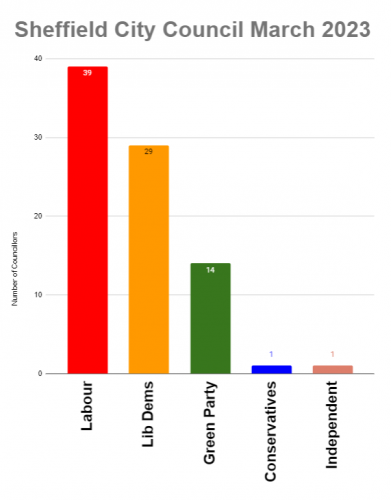
Sheffield’s Green Councillors have welcomed news of a Government concession on plans to force Councils to go back to the “Strong Leader” way of running the council.
Sheffielders rejected the Strong Leader and Cabinet model in a 2021 referendum – brought about by It’s Our City
Councillor Marieanne Elliot, deputy leader of Sheffield Green group of Councillors, said,
“This news is good for Sheffield, good for the Council and good for democracy in Sheffield.”
Government plans for “devolution” included taking powers away from communities and councils to decide their system of governance. People in Sheffield had exercised this power in the wake of the street trees scandal. 26,000 residents of Sheffield signed a petition to force a referendum in May 2021. The referendum ordered the council to replace the failed Leader and Cabinet system with the more transparent and accountable Committee system, where all 84 elected Councillors contribute to decision making. The vote was 2:1 in favour of change.
Under the draft English Devolution and Community Empowerment Bill, communities are to be stripped of these rights and councils will to be forced to convert back to the undemocratic Leader and Cabinet system.
Now, new Government proposals will allow some councils with Committee systems, including Sheffield, to justify their existence.

Cllr Marieanne Elliot continued,
“The Government plans for all councils to have a Leader and Cabinet shows a complete distrust in democracy.
“Sheffielders voted two to one to change the system of governance to the Committee system.
“In Sheffield, we know how damaging it would be to force us back to the old system. The Council has worked so much better since the Committee system came in.
“Siân Berry MP (Green MP for Brighton Pavilion), spoke powerfully about Sheffield in Parliament’s Bill Committee, referring to the evidence provided by the Sheffield Green Group. In response to Siân’s arguments, the minister said she would “reflect hard” on what she had said.
“All 3 party groups on Sheffield City Council have made representations to the Minister. This includes a clear statement in support of the Committee system by the leader of the council. Representations were also made by Abtisam Mohamed MP and Olivia Blake MP – both were Sheffield Councillors under the old Cabinet system.
“I am pleased to see the Government has now proposed amendments to the Bill that will allow Sheffield to continue working in the more progressive, democratic way that it has established.
“However, I believe the Government should allow other populations to learn from Sheffield’s example in the future. Sadly, they still intend to entirely remove those rights from other communities and councils. There is still no reference to improving democracy or any real devolution.”

Siân Berry MP commented,
“The Government should not be interfering with well-chosen local council governance systems at all, but at least ministers listened to my arguments in the Public Bill Committee and will now be protecting areas whose residents came together to change their council to a more collaborative committee system through a democratic referendum process.
This includes the people of Sheffield, whose choice of a committee system will now be respected if the council wishes to keep it. I am very pleased to have helped the Government listen to local voices and see some sense on this.”
ENDS
NOTES TO EDITORS
- The Third Reading of the English Devolution and Community Empowerment Bill is due to be heard from Monday 24th November 2025.
- Sheffield’s Green councillors gave evidence to the Bill committee, which can be found at: https://publications.parliament.uk/pa/cm5901/cmpublic/EnglishDevolutionCommunityEmpowerment/memo/EDCEB36.htm
- Sheffield City Council unanimously passed a motion from the Green councillors in July 2025 in support of the committee system, saying “it benefits nobody in Sheffield to return to the autocratic, top-down decision-making Cabinet system;” and that “Sheffield benefits from fairer, more representative governance arrangements, and that people expect the Councillors they elect to have a vote on the decisions that affect them.”











